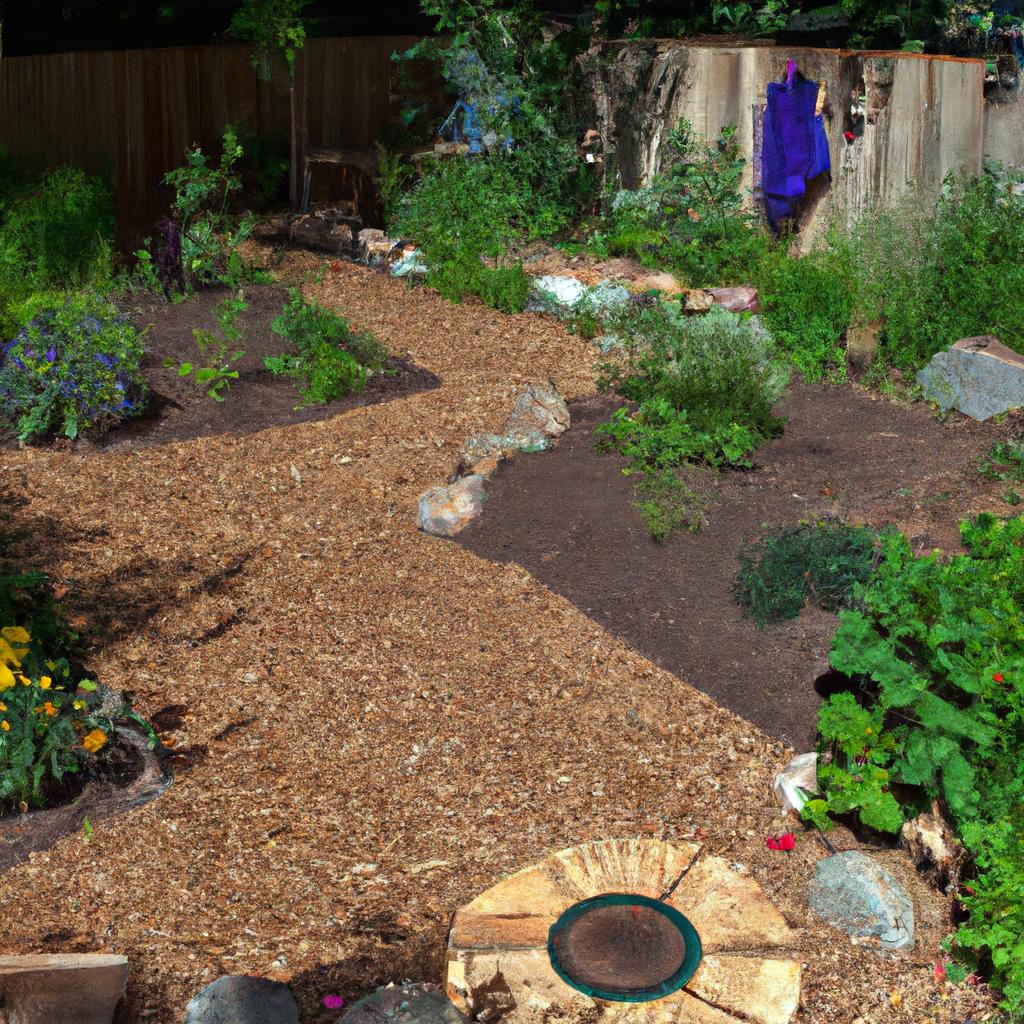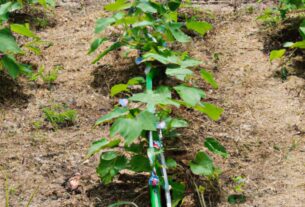Gardening is a wonderful way to immerse ourselves in nature, relish the outdoors, and indulge in fresh, wholesome food. But to truly harness the benefits, we must ensure our gardens are sustainable, benefiting both us and the environment. By implementing practices that promote environmental health, resource conservation, and biodiversity, we can create gardens that are healthy, green, and highly productive.
Planning for a Sustainable Garden
Before diving into the planting process, it’s essential to lay a solid foundation for a sustainable garden. Here are some crucial factors to consider:
Site Selection
Choosing the right location is key. Opt for an area that receives ample sunlight and boasts good drainage. Be cautious of flood-prone or soil-poor zones. Additionally, take into account surrounding elements like prevailing winds and the presence of trees that may block sunlight.
Soil Preparation
Building healthy soil is the bedrock of a sustainable garden. Begin by testing the soil’s pH level and nutrient content. Enhance its quality by incorporating organic matter such as compost, manure, or mulch. Steer clear of synthetic fertilizers that can harm soil microbes and contaminate groundwater.
Water Conservation
Water is a precious resource, so let’s use it wisely. Install a rainwater harvesting system to collect and repurpose water for garden irrigation. Ditch traditional sprinklers and embrace drip irrigation or soaker hoses to minimize water loss through evaporation. And don’t forget to mulch your garden beds to retain moisture and further reduce water loss.
Plant Selection
To thrive in your garden, choose plants that are well-suited to your climate and soil conditions. Native plants are an exceptional option as they require less water and exhibit higher resistance to pests and diseases. Encouraging biodiversity by planting a range of crops helps minimize the risk of pest and disease outbreaks. Remember to rotate crops each season, preventing soil-borne pests and diseases from accumulating.
Practices for Garden Sustainability
Once your garden is planned, it’s time for action. Implement these key practices to promote garden sustainability:
Composting
Composting is a simple yet incredibly effective method of reducing waste while enhancing soil health. By transforming organic matter like kitchen scraps, leaves, and grass clippings into nutrient-rich compost, you’re offering your garden a boost. Compost not only improves soil structure and fertility but also curtails organic waste destined for landfills, where it generates the potent greenhouse gas, methane.
Integrated Pest Management
Integrated pest management (IPM) offers an environmentally friendly alternative to pest control. It combines techniques like crop rotation, companion planting, and biological controls to minimize the use of synthetic pesticides. By reducing harm to beneficial insects, soil, and water, IPM safeguards ecological balance while protecting human and animal health.
Crop Rotation
Crop rotation involves alternating the crops grown in the same area over successive seasons. This technique disrupts the life cycles of pests and diseases that target specific crops, while simultaneously replenishing soil nutrients. For instance, legumes like peas and beans fix nitrogen in the soil, benefiting subsequent crops like tomatoes and peppers that thrive in nitrogen-rich environments.
Mulching
Covering the soil surface with organic materials like leaves, straw, or wood chips is known as mulching. By doing so, you conserve moisture while stifling weed growth and regulating soil temperature. As the mulch breaks down, it enriches the soil with organic matter, bolstering its structure and fertility.
Garden Sustainability Techniques
In addition to the mentioned practices, there are several techniques to further enhance the sustainability of your garden:
Companion Planting
Companion planting involves strategically placing different crop varieties together for mutual benefit. For instance, marigolds planted near tomatoes help repel pests like nematodes. Similarly, planting beans near corn aids in nitrogen fixation. Companion planting is not only space-efficient but also enhances overall yields.
Rainwater Harvesting
Collecting rainwater from rooftops or other surfaces for future use is known as rainwater harvesting. This method conserves water, reducing reliance on municipal supplies. Collected rainwater can be used for garden irrigation, car washing, or even flushing toilets.
Use of Organic Fertilizers
Organic fertilizers, such as compost, manure, and bone meal, provide essential nutrients without the environmental harm caused by synthetic alternatives. These organic options improve soil health, lessen the risk of nutrient runoff, and protect nearby water sources from contamination.
Use of Renewable Energy
Powering garden tools and irrigation systems with renewable energy sources, such as solar panels or wind turbines, significantly reduces your carbon footprint. Embracing clean and abundant energy alternatives is a fantastic way to promote sustainability while minimizing reliance on traditional fossil fuels.
In conclusion, a sustainable garden not only benefits the environment but also enhances your well-being. By implementing the tips and techniques shared in this article, you can create a garden that is healthier, greener, and more productive. By doing so, you’re making a positive impact on the planet, setting a remarkable example for others to follow. At TooLacks, we encourage everyone to embrace sustainable gardening practices to create a brighter future for ourselves and generations to come.
Benefits of Garden Sustainability
Creating a sustainable garden offers a multitude of benefits, including environmental, health, and economic advantages.
Environmental Benefits
A sustainable garden contributes to environmental protection by conserving natural resources and reducing pollution. Organic gardening practices minimize the use of synthetic pesticides and fertilizers, limiting their impact on soil and groundwater. By promoting biodiversity, sustainable gardens provide habitats and nourishment for beneficial insects, birds, and other wildlife.
Health Benefits
Enjoying fresh, homegrown produce from your garden is one of the most significant health benefits of sustainable gardening. By growing your food, you have control over what you eat and how it’s grown. Organic practices reduce exposure to harmful chemicals, safeguarding both human and animal health.
Economic Benefits
Sustainable gardening offers long-term economic advantages by reducing reliance on costly synthetic fertilizers and pesticides. Growing your own food can lead to significant savings on grocery bills and even provide an income if you sell excess produce.
In conclusion, creating a sustainable garden is a remarkable way to relish fresh, healthy produce while protecting the environment and conserving resources. By following the tips and practices outlined in this article, you can create a garden that is healthier, greener, and more productive.
We encourage you to join the sustainable gardening movement and help create a brighter future. Let’s work together to build a healthier planet for ourselves and future generations.
Thank you for reading, and for more informative articles on nature, gardening, animals, and more, visit TooLacks.



